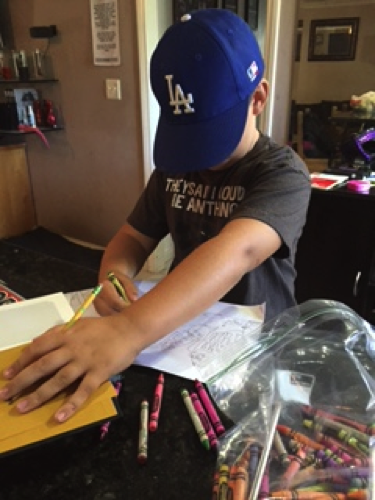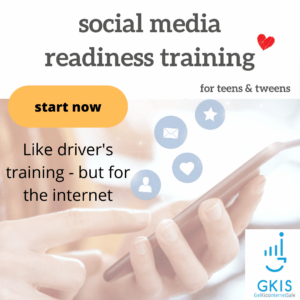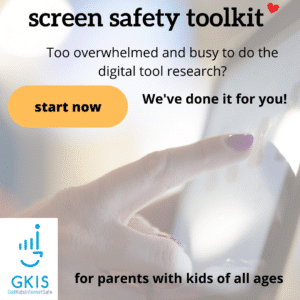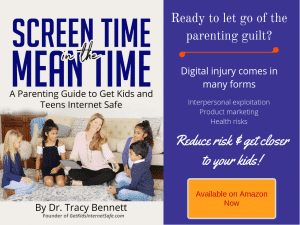
When the term “addiction” is used, most people think of drugs or alcohol. But in the digital age, there is a new addiction that is accessible to almost everyone and can start in elementary school. It is the Internet. Parents use the Internet to occupy their children, and teachers use it in the classrooms as a daily educational tool.
Internet addiction does not sound like a big deal, but like other addictive drugs and behaviors, it has undesirable psychological consequences and some of the same withdrawal symptoms. It is also very accessible. No ID is needed to verify age for use, and the Internet is open twenty four hours a day, seven days a week.
I’m Kathleen, Dr. Bennett’s intern from California State University Channel Islands. My eleven year-old daughter once again did not do her chores, so I took her phone and computer use away. Her reaction shocked me. When she could not access her social media sites she became agitated, emotional, restless, and begged and pleaded for me to let her use it for just a minute. She was acting like a drug addict who needed a hit to ease the pain. Was she in the beginning stages of Internet addiction?
Pre-addiction signs to look out for:
Increasing use to achieve satisfaction
This can happen when an adolescent is using gaming or social media to fulfill emotional needs. They will keep logging on to feel close to others if their emotional needs are not being met in real life. These needs are satisfied through maintaining online relationships with gaming (more common among boys) and social media (more common among girls) to give the feeling of pleasure and or escape from what is going on in nonvirtual life. Emotional needs are met through getting a “like” on a picture, a response to a post, or a new friend request rather than a healthy collaborative friend relationship.
Preoccupying thoughts about use
An adolescent may have intrusive thoughts about Internet use such as, “I need to see if anybody commented on my photo,” or “What if I miss out on something important?” These thoughts can distract them from studying and maintaining real life relationships with their friends and family.
Falling grades from overuse
Grades can decline from screen use for social media, gaming, and chatting instead of doing homework and studying. Also if a child has a computer or smartphone in their room, loss of sleep from staying up late to use the Internet contributes to falling grades (Hung et al., 2005).
Other symptoms that may be an indicator that an adolescent’s Internet use has moved from fun to addiction are lying about how much time is spent online, responsibilities get ignored, mood changes from not being able to log on, and relationships become strained. Despite addiction risk, there are many benefits that the Internet provides. It serves as research and study tool and can help maintain relationships between friends and family.
Suggestions to ensure healthy screen use:
Set limits. Filter. Monitor.
One of the best strategies for preventing Internet addiction is making sure your children have limits to what they do and see online and how much time they spend. Make nonschool computer use a reward for helping out and maintaining good grades instead of using the computer to entertain your child.
Prevent boredom by providing enriching activities
Boredom can be alleviated with Internet use, but there are many other things that can as well. Provide and promote books, puzzles, or arts and crafts instead of Internet use. Instead of the computer being used as a tool for relaxing, encourage going for a walk around the block or sign your child up for after school group or sport activities. This will not only help limit computer use but it also provides exercise.
Connect better as a family
Family activities will help strengthen relationships and bring closeness. Have a picnic in the park, go on a hike, or play a board game together. This will not only help limit computer use for your child but for you as well. This can also be a great way to have a ongoing teaching dialogue with your children and family (Lin et al., 2009).
While there are lots of benefits of Internet use, it is important to keep a look out for trouble signs. And if your child’s symptoms are getting in the way of academics and healthy relationships, seek support from your pediatrician or clinical psychologist. For more information on how to limit computer time, check out “Start Fall Fresh with a Cleansing Digital Detox.”

I’m the mom psychologist who will help you GetKidsInternetSafe.
Onward to More Awesome Parenting,
Tracy S. Bennett, Ph.D.
Mom, Clinical Psychologist, CSUCI Adjunct Faculty
GetKidsInternetSafe.com
Works cited:
Lin, C. , Lin, S. , & Wu, C. (2009). The effects of parental monitoring and leisure boredom on adolescents’ Internet addiction. Adolescence, 44(176), 993-1004.
Ko, C. , Yen, J. , Chen, C. , Chen, S. , & Yen, C. (2005). Proposed diagnostic criteria of Internet addiction for adolescents. The Journal of Nervous and Mental Disease, 193(11), 728.











